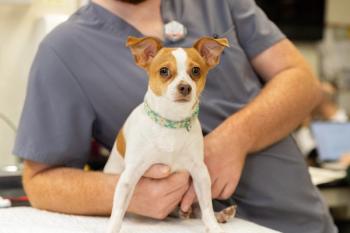
Preventing risk of fentanyl overdose in K9 police dogs
Good Air Team LLC searches for a solution to protect K9 dogs from opioid overdose
Good Air Team LLC is reporting an increasing number of K9 service dogs displaying symptoms of opioid overdose while assisting police officers in drug raids.1 Because they do their job primarily by sniffing, police dogs are facing severe health risks from new drugs like fentanyl.2
For the human police officers, wearing respirators, dust masks, latex gloves, and long-sleeve shirts are all protective measures they can take while handling fentanyl. However, these options are not as easily available or accessible for police dogs.
To combat this issue, Good Air Team has announced in a company release1 its development of a K9 Mask dog air filter, which offers a new way to protect working dogs from opioid inhalation. The K9 Mask has an N95 air filter option which significantly minimizes the danger of a dog inhaling opioids.
Fentanyl is 30 to 50 times more potent than heroin. Just a few inhaled grains of fentanyl can cause a dog to overdose.1 A police handler may not see a fentanyl threat to a K9 dog until it is too late.
The American Veterinary Medical Association (AVMA) documented, “Sporadic reports indicate police dogs and some pet dogs have been victims of overdoses or suspected overdoses. Those include three police dogs that showed clinical signs but survived after fentanyl exposure in a Florida home.”3
Other solutions to prevent overdoses include equipping all police canine teams with Narcan, the overdose-reversal drug. Police in Colorado have begun to keep Narcan on them while K9 dogs are on duty or in training working with these dangerous drugs. Maryland state police are carrying Narcan for their dogs and are trained to look for "excessive drooling and severe limping" as overdose symptoms. Police in Canada are training dogs on liquid, rather than powder fentanyl to minimize the risk of exposure during training.1
References
- Solutions for protecting K9 police dogs from overdose. News release. Good Air Team LLC. May 24, 2022. https://prnmedia.prnewswire.com/news-releases/solutions-for-protecting-k9-police-dogs-from-overdose-301553341.html
- Metraux J. Opioid epidemic affects police dogs too. The Bark. May 2018. Updated June 2021. Accessed May 24, 2022. https://thebark.com/content/opioid-epidemic-affects-police-dogs-too
- Cima G. Synthetic opioids put police dogs at risk. American Veterinary Medical Association. January 18, 2018. Accessed May 24, 2022. https://www.avma.org/javma-news/2018-02-01/synthetic-opioids-put-police-dogs-risk
Newsletter
From exam room tips to practice management insights, get trusted veterinary news delivered straight to your inbox—subscribe to dvm360.





